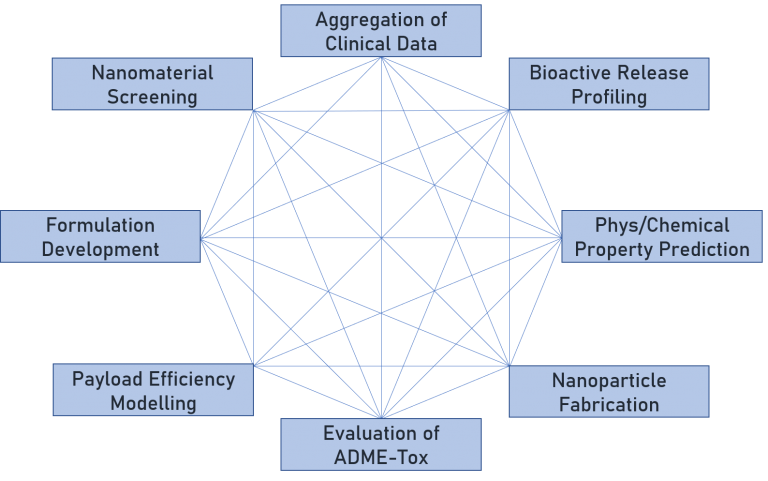Artificial Intelligence
Computational aided design
Artificial Neural Networks
BioCyto is developing a precision healthcare drug delivery system design platform specifically for studying the relationship between the nanocarrier structure and properties that govern its interaction with the biological system such as physicochemical stability under biologically-relevant conditions, transport to target site and ultimately pharmacokinetics. BioCyto’s new AI and machine learning design tool set will inform the construction of customizable/tailorable nanocarriers to provide a comprehensive, precision medicine approach to treating difficult-to-treat diseases.
Artificial neural networks are being deployed to rapidly identify functional relationships of electrosprayed nanoparticles with desired pharmacokinetic profiles. This approach facilitates complex phenomena modelling from design to simulation and for solving linear and nonlinear multivariate regression.

Generally, our optimised AI model architecture consists of interconnected processing elements as the input layer, various hidden layers and an output layer capable of learning from experimental data. During the model learning process, backpropagation algorithms are used to correct any predicted errors by adjusting the weights and bias for each neuron and hidden layer. A weight matrix is used to determine the significance of the input parameters on the desired output.
BioCyto’s AI technology platform saves time and costs in nanoparticle research and development by offering the ability to computationally analyse disciplinary and interdisciplinary data, solving complex problems associated with designing of functional drug delivery nanosystems by making informative decisions on process variables, relationships between formulations, drug loading and treatment outcomes.
In addition to designing and manufacturing novel nanoparticles, BioCyto is developing tools to analyse clinical data to sub-optimal patient therapy outcomes. By developing these knowledge connections, we are illuminating new insights to molecular mechanisms of disease and efficacy factors that lead to the development of next generation nanomedicine drug delivery.
